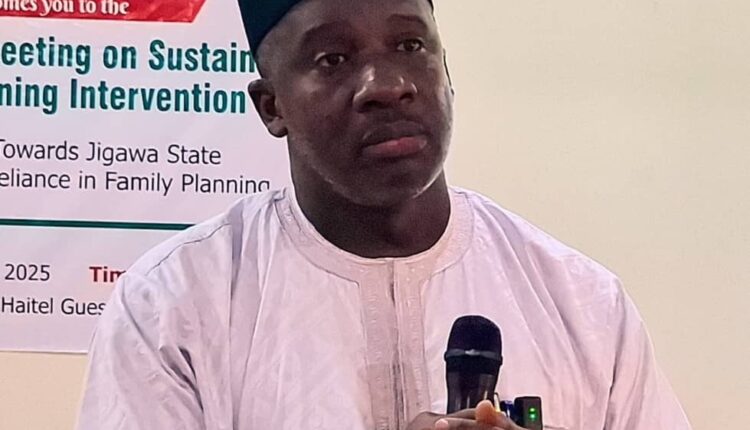Jigawa PHC Boss Urges End to Monopoly in Family Planning Supply Chain as TCI Exits
The Executive Secretary of the Jigawa State Primary Healthcare Development Agency (PHCDA), Dr. Shehu Sambo, has called on the Federal Ministry of Health and the World Health Organization (WHO) to break what he described as the monopoly in the supply chain of family planning commodities in Nigeria.
Speaking at a high-level transition alignment meeting on the institutionalization of The Challenge Initiative (TCI) programmes in Dutse, Dr. Sambo said the current supply process is hindering access to essential family planning tools, particularly in rural states.
“At the 2024 National Conference on Family Planning, I asked: why is it easier to buy anesthetics and other surgical products on the open market, but not family planning commodities? Why is there only one supplier feeding the entire country? Why can’t we manufacture them locally?” Sambo questioned.

He argued that the centralized control and bottlenecks in the commodity distribution process contribute to stockouts, inadequate coverage, and rising maternal mortality in many states, including Jigawa.
Dr. Sambo also criticized the limited $45 million budget allocation for family planning across Nigeria, calling it grossly inadequate for the country’s population size.
“What is $45 million for a country of over 200 million people? We need more investment and greater autonomy for states to procure what women urgently need,” he stated.
He commended the Jigawa State Government’s commitment to sustaining family planning initiatives and revealed that a work plan and budget memo had already been prepared for executive approval.
Dr. Sambo further expressed dissatisfaction with the targets set under the Health Vision 2030, describing the goal of 27% family planning coverage as too low given Nigeria’s maternal health challenges.
Meanwhile, Dr. Taiwo Johnson, Country Director of The Challenge Initiative (TCI), said the meeting was organized in collaboration with the Jigawa State Government to ensure a smooth transition and ownership of TCI interventions as the program nears its end in May 2025.
“Our goal is to ensure continuity, scalability, and long-term sustainability of family planning programmes beyond the lifespan of TCI,” Dr. Johnson said.
She highlighted the extensive work done by TCI in 13 of Jigawa’s 27 local government areas to include, 9,861 postpartum family planning clients reached, 421 neighborhood campaigns, 889 voluntary mobilization efforts, 82 inreaches and 36 service outreaches, 120 association meetings, 234 key life event engagements and 27 structured community dialogues
The local governments covered include Malammadori, Dutse, Birnin Kudu, Babura, Ringim, Buji, Kafin Hausa, Jahun, Gagarawa, Yankwashi, Gwaram, Maigatari, and Kiyawa.
Dr. Johnson commended the state’s readiness to own the programme, urging continued collaboration among stakeholders to keep momentum alive in addressing maternal health and family planning needs.

